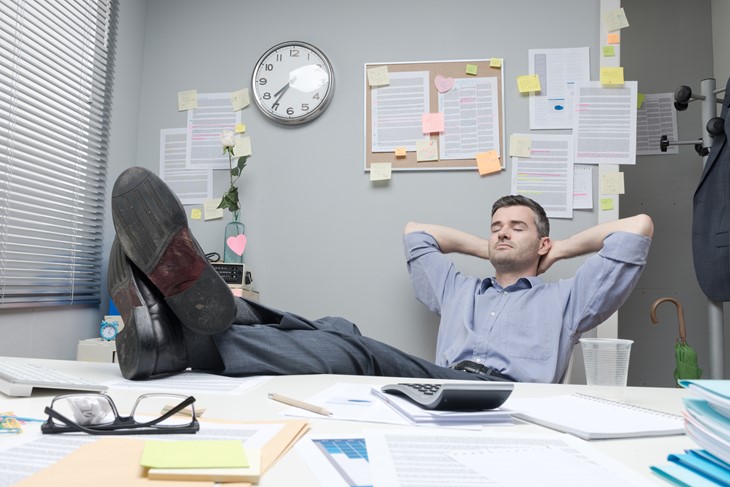- Get a quote
- Jobs
-
Employers
- Employers
-
Hire Staff
-
Our Sectors
-
Testimonials
-
About
- About
-
Our Team
-
Our Company
- Contact
- Blog
- EN | PL
Sedentary workers: how about these health tweaks?

Posted by
HR GO Recruitment
on
Sitting at a computer all day. As far as workplace health and safety goes, it doesn’t seem that dangerous, does it?
Yet research co-commissioned by Public Health England has brought the risks of sitting down for prolonged periods without moving sharply into focus.
This inactive type of working can cause a slower metabolism and ultimately lower life expectancy, and there are now calls for office workers to spend two hours of every working day standing or doing light activity like walking - before gradually working up to a total of four hours a day.
What's the problem with sitting?
The list of health nasties associated with prolonged sedentary working make grim reading, leading to it being dubbed as ‘the new smoking’. Even if you exercise regularly outside of work, it can increase your risk of:
- heart disease
- diabetes
- obesity
- certain cancers including lung cancer, colon cancer and endometrial cancer
- muscle and joint problems
- depression
So what's the advice?
Public Health England has recommended that office workers are given the chance to break up periods of seated work with regular bouts of standing work.
The most obvious route for this is via standing desks, or desks that are height-adjustable. Not only does standing to work improve blood flow and circulation, but it can also alleviate back pain, boost muscle strength and burn up to 100 calories an hour.
Chances are, ordering an office of expensive standing desks will be an unrealistic outlay for your organisation. Plus, you may not have the right structures in place to allow staff to spend a significant part of their working day on their feet. So here are suggestions to weave standing and activity into everyone’s routine:
More breaks
The official government line informs us of the absolute minimum number of breaks employees must have: ‘Workers have the right to one uninterrupted 20 minute rest break during their working day (this could be a tea or lunch break), if they work more than 6 hours a day.’
But the simplest way to break up sedentary working is to aim to give staff more chances to stand up and move around - and at a fundamental level that means more breaks.
Stand for the phone
This may not be possible if you or your staff need access to a computer or desk for phone work, but stand up to take calls. It’s something many of us try to do when we can at HR GO, and it has the added bonus of making us more focused on our conversations too.
Stand to meet
If there’s no need for computer access during a meeting, why sit down? Stand up and face each other, or gather in a circle. Better still, hold a walking meeting.
Half hourly reminder
Setting a reminder on your phone is a great way to cement the habit of standing up regularly. In fact, the Public Health England study also looked at whether installing alarms on computers would prompt employees to get up and move.
Exercise at your desk
If nothing else, move around more at your desk. Try exercises like seated twists, stretching your arms overhead or shoulder rolls. There are more fun (if a little embarrassing) suggestions here to get everyone moving. Will we be trying them at HR GO? Watch this space!
Categories
Featured insights
What’s the number one thing job candidates want from you?
What’s the number one thing job candidates want from you?
Read more